
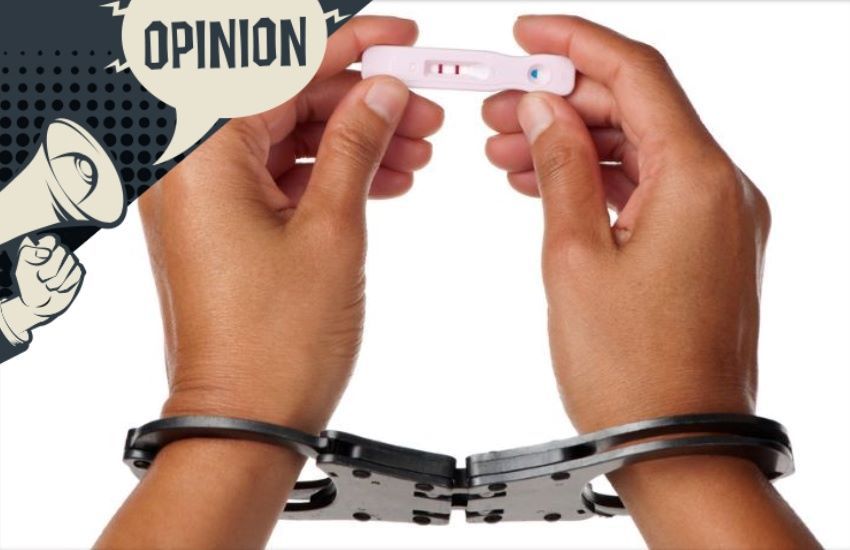

Dr. Rebecca Tidy is an experienced journalist and social researcher. Here, Dr. Tidy writes for Express about the social and financial disadvantages of the Bailiwick imprisoning mothers of young children for non-violent crimes.
In the summer 2021, a heavily-pregnant young mum of a toddler was sentenced to two years and four months in prison after supplying 69 grams of cannabis to friends at a Guernsey house party.
The woman’s jail term began a fortnight before she was due to give birth. She then had four days to bond with her newborn before being returned to prison childfree as Les Nicolles doesn’t have a mother-and-baby unit.
There’s no doubt that forcibly removing a newborn baby and toddler from their mother is hugely traumatic for both the mum and child with lifelong consequences for physical and mental health. But when you take into account that this was a first-time drug supply offence – of a few ounces of a Class B substance – it raises the question of whether this custodial sentence can ever be considered proportionate or just.

Pictured: Dr. Rebecca Tidy shares her research and experience with Express readers and asks them to consider whether imprisoning mothers of young children is best for the community as well as the women themselves and their children.
As a mother, the unimaginable pain of forced separation is the kind of oppressive scenario you’d expect to see in an undemocratic, third world country. Not in prosperous, civilised Guernsey where 80 per cent of eligible citizens voted in the last election and average household income was £73,834 in 2018.
But sadly, a total of three mums with dependent children were imprisoned in the Bailiwick during 2020; with a further 10 in 2019; three in 2018; and 11 in 2017. And there are several women with young kids facing the possibility of jail this year for non-violent offences, including a working mum of two-year-old twins, who has been charged with Class B drug supply, along with the children’s father.
Criminologist Dr Lucy Baldwin from De Montfort University recently shared a heart-rending excerpt from an interview with a 19-year-old mother describing the agony of being sent to prison while breastfeeding: “I was locked in this horrible, lonely, scary place with leaking breasts and no baby...I held my pillow like it was my child and it was soaked with my milk and my tears...I felt bereft - I have never felt grief or pain like it.”
Dr Baldwin observes that prison can present significant added emotional challenges for mothers with one mum noting that the separation from her children was "like a deep emotional pain that envelopes you".
It’s unsurprising, therefore, that incarceration frequently leads to longer-term attachment difficulties with many women unprepared for reintegration into motherhood on release.
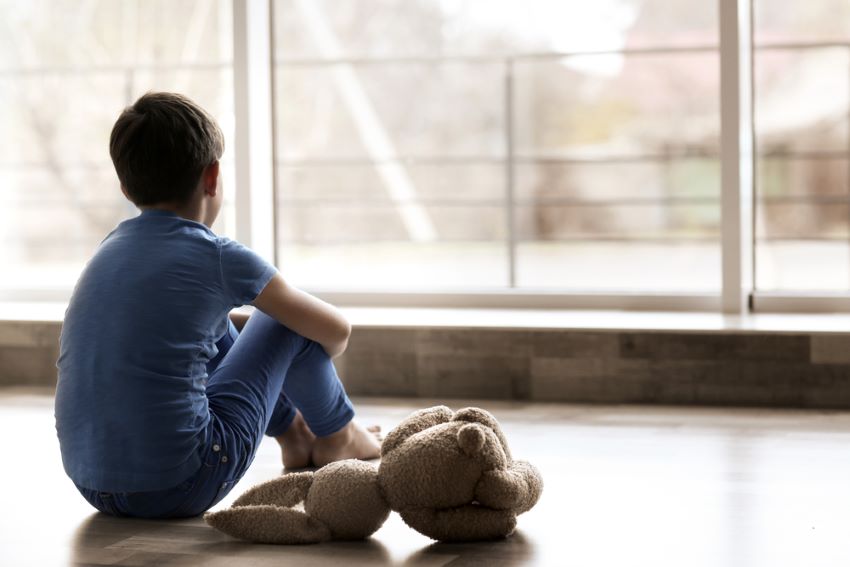
Pictured: The challenges faced by young children when their parents are sent to prison - especially mums, who are often their primary caregivers - are well documented.
A mum-of-four recently serving an eleven-and-a-half-year sentence in Les Nicolles described it as a stigmatised and painful time with more than one prison officer said to have impatiently responded to an emotional outburst with words such as: you weren’t thinking about your kids when you committed the crime.
This lack of awareness – or concern – for a mother’s guilt, shame, losses and changed relationships is symptomatic of a wider cultural problem whereby the specialist needs of mums are generally neglected and ignored. The criminal justice system was largely designed by men for men and – as such – it fails criminalised women, especially parents.
It’s especially noticeable in the Bailiwick, at least partly due to the lack of a mother-and-baby unit in the prison.
Criminal justice experts, including the University of West London’s Professor Simon Harding, observe that the drivers of female offending are distinct to those of men.
Women disproportionately commit crime due to desperation, as opposed to ego, a desire for vast wealth or anger, Professor Harding says. It’s more frequently a response to the financial or emotional struggles in their life, thus underlining the importance of targeted or differentiated support.
Studies have consistently highlighted a correlation between maternal imprisonment and adverse childhood experiences as well as domestic and physical abuse during adulthood. For many mothers, a jail term comes after an extremely difficult or chaotic series of life events.
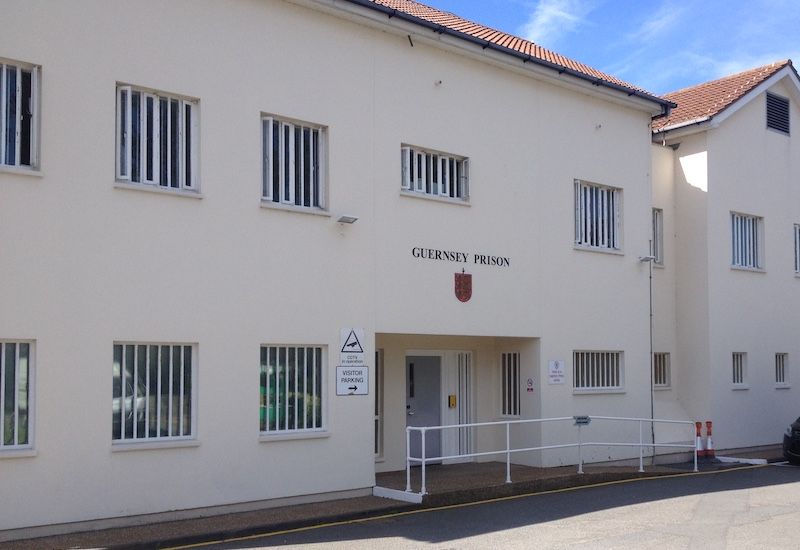
Pictured: Guernsey Prison has no facilities for babies or young children to live with their mothers and limited facilities for them to spend time together during the day.
There have generally been many missed opportunities for help in these women’s lives, experts note. For instance, support may not have been available during adverse childhood experiences. In other scenarios, women may have been too scared to seek help for fear of losing their children - only to lose them when they are sent to prison anyway.
Despite this, Deputy Neil Inder echoed the views of many when he tweeted “I don’t dig the rolling out of the I’m a mother card” in an online debate about the incarceration of mums for non-violent offences in Guernsey.
I've stated publicly that elements of the sentencing policy are anachronistic. I don't dig connecting legitimate pharmaceutical businesses as a lever for sentencing guideline changes. Or rolling out the 'I'm a mother card'
— tothevale (@tothevale) October 11, 2021
But we need to turn the tables and talk about the human rights of the child, who deserves a fair chance at life.
Maternal imprisonment has a far greater impact on kids than paternal imprisonment, since mothers are more often the sole or primary carer. Around 95 per cent of children are forced to leave their home when their mother goes to jail. They’re also significantly more likely to experience exclusion from school, suicide attempts, increased vulnerability to exploitation, mental health issues and intergenerational crime.
Innocent children at the sharpest end of society are – unnecessarily – being torn apart from their mothers and become the collateral damage of this punitive system. Crest Advisory recently shared an excerpt from a child whose mother was serving a custodial sentence: “If you were to stand my mum up in that box with me and my brother and someone turned around and said 'do you sentence these three', would the judge look at it differently?”
The imprisonment of parents for non-violent crimes such as drug possession and small-scale supply is detrimental to the Bailiwick’s goal to boost child and family well-being, as noted in the 2020 Guernsey Justice Review. This sentiment is shared by barrister Dr Shona Minson, who carried out Britain’s biggest study into maternal imprisonment and notes that the harms to a dependent child may make a custodial sentence disproportionate.
Dr Minson says: “The UN Convention on the Rights of the Child requires states to prevent children from being discriminated against as a consequence of the status or activities of their parents. When a mother receives a custodial prison sentence away from their newborn baby or young child, it disrupts early attachment, causes serious harm to the children and irreparable damage to their future life chances. As a signatory to the Convention, Guernsey is in breach of its duty towards the child."
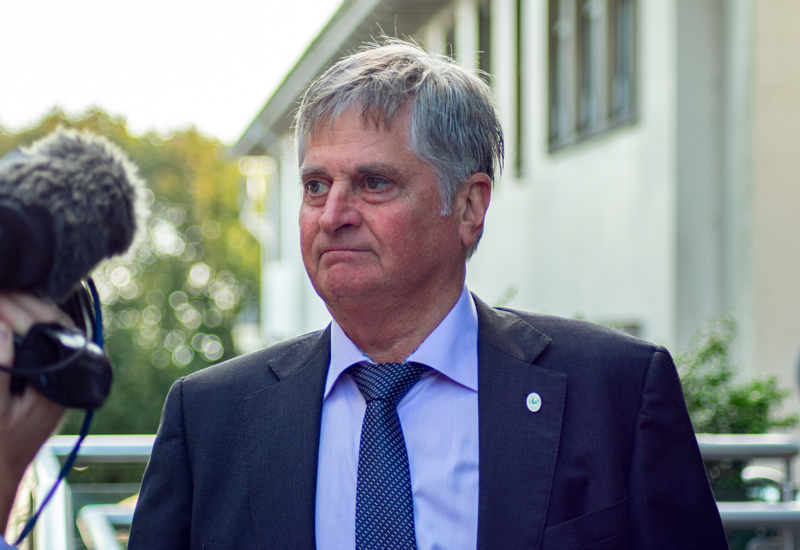
Pictured: Dr. Rebecca Tidy hopes that the President of the Committee for Home Affairs, Deputy Rob Prow, and his members will pay attention to the UN Convention on the Rights of the Child when drafting long-awaited reforms to the island's justice policies.
Most depressingly, the empirical evidence suggests that custodial prison sentences don’t serve as a deterrent to offenders, as this group seems to consider the future less than non-criminals, meaning that jail terms often seem arbitrary or irrelevant.
Incarcerating mothers with young kids comes at huge expense to the public purse. The UK government is spending up to £265,008 on interventions per family experiencing maternal imprisonment. This cost is calculated using the average female sentence length of 11 months. And let’s face it, that’s an awfully expensive way to send out a message that certain behaviours aren't acceptable.
Decision-makers need to consider the objective of imprisonment for smaller offences such as drug possession or small-scale supply, Professor Harry Sumnall from Liverpool John Moores University recently noted in a report for Guernsey’s Committee for Health & Social Care. If the goal is to punish an individual, then prison serves the purpose perfectly, he says. But if the aim is to reduce re-offending and harm, then jail doesn’t fulfil this task.
This basic principle is relevant to most instances of non-violent crime regardless of whether illegal drugs are involved, as studies show that treating, educating and socially reintegrating people who have committed an offence can yield a greater benefit to both the individual and the community as a whole.
Effective non-punitive options include rehabilitation, restorative justice and support with issues such as employment and family life, but – right now – opportunities to divert mothers out of the criminal justice system are being missed.
There’s significant support for a less punitive approach in Guernsey. A 2020 survey carried out as part of the island’s Justice Review highlighted that most respondents favoured prevention and support over punitive options. Correspondingly, the least popular approach was 'taking people who commit crime out of the community'.
So why are politicians yet to act on this widespread public sentiment?
Furthermore, authorities in the Bailiwick use Home Detention Curfews – with electronic tagging – significantly less often than their UK counterparts. On the mainland, tagging is often integrated with a community order as an alternative to suspended or custodial sentences. GPS tagging has a daily cost of just £9 per offender in England and Wales, which is a stark contrast to the £50,000 per inmate annual cost of imprisonment in Guernsey.
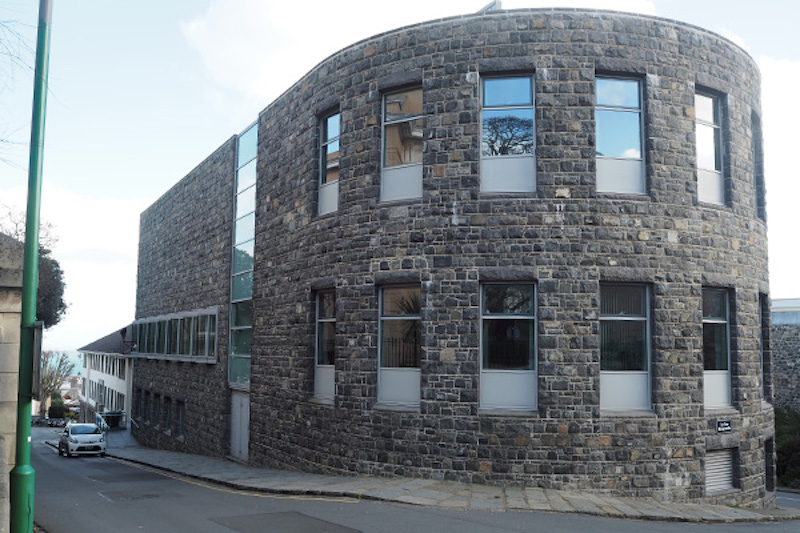
Pictured: Dr. Rebecca Tidy argues that the courts in Guernsey should make more use of electronic tagging as an alternative to custodial sentencing of mothers of young children and pregnant women.
While still regarded as a punishment, it allows children to benefit from a continued bond with their primary caregiver. The mother who committed the offence experiences restricted liberty while receiving the intervention and rehabilitation needed to build a purposeful, law-abiding life in the community.
For societal wellbeing, it’s crucial to minimise the detrimental impact of non-violent crime on the community as a whole but – equally – there’s a very real need to ensure that the harm caused by a custodial prison sentence doesn’t outweigh the costs of the crime to society.
Guernsey had the second-highest rate of imprisonment in Europe during 2017, behind only Hungary, and this comes at significant expense to the taxpayer and families affected by incarceration.
The emotional bond between a mother and her child is extraordinarily powerful and it can yield enduring mental health benefits for both parties. By imprisoning primary caregivers, the States are failing to harness maternal attachment as a motivating and rehabilitative factor to facilitate desistance and prevent reoffending.
Sadly, this missed opportunity – or shortcoming – is likely to have a long-term impact on vulnerable families for generations.
Dr. Rebecca Tidy